Educational Board Games for Adults
Board Games for Adults? Yes.
The world of modern board games isn't just for kids anymore. Board gaming has evolved into a serious hobby, so it's no surprise that young adults and adults have become an important target group for publishers. What sets games for adults apart isn't just the theme, but also the complexity of the game mechanics and the specificity of the skills and abilities required by the gameplay. A communication party game based on associations, for example, demands a certain level of abstraction and vocabulary.
Take, for example, a game like 'Outfoxed!.' Although it's a delightful game, its simplicity and easy-to-play mechanism may not fully engage adults and meet their gaming expectations.
When putting together the following list, we focused on popular games that also provide a proper challenge for adults. We've gathered links, brief rule descriptions, and basic characteristics for each game, helping anyone find their preferred path to dive into the world of modern board games.
Worth noting
These games are not restricted to family or friend gatherings only. They can be seamlessly incorporated into corporate events and training programs, effectively transforming tedious workshops into interactive, fun, and worthwhile experiences.
So whether you're seeking some relaxed fun with friends and family or aiming to incorporate some engaging elements in a corporate setting, our recommendations are just what you need.
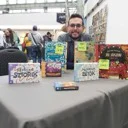
It's an interesting question—children's game or adult game. For example, I found myself stuck in the "children's game author" box, which I didn't feel comfortable with for a long time. My experience is that no matter how successful a children's game is, it receives much less attention from the industry, and board game enthusiasts don't discuss these games on forums.
However, I am pleased with the success of "Abszolút megvadult betűk," a modern word game specifically designed for older children and adults.
Modern Board Games
In recent years, it has become increasingly popular to create children's versions of successful games originally aimed at adults. And many of these have turned out quite well.
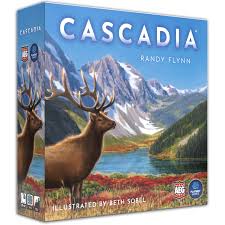
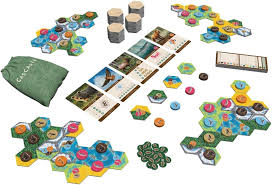
Cascadia
Cascadia ist ein fesselndes und zugängliches Brettspiel, das die Spieler einlädt, den vielfältigen Lebensraum des pazifischen Nordwestens zu erkunden.
Die Spieler wählen abwechselnd ein Lebensraumplättchen und ein passendes Tierplättchen und platzieren sie, um das harmonischste Ökosystem zu schaffen – durch große zusammenhängende Lebensräume und das Erfüllen bestimmter Platzierungsziele. Das Spiel endet, wenn alle Plättchen gelegt sind.
Tools
85 Lebensraumplättchen, 100 Tierplättchen, 25 Naturplättchen, 5 Start-Lebensraumplättchen, 21 Tierwertungskarten, 1 Punkteblock und ein Regelheft.
Skills Developed
Das Spiel fördert Mustererkennung, räumliches Denken, strategische Planung und Entscheidungsfindung.
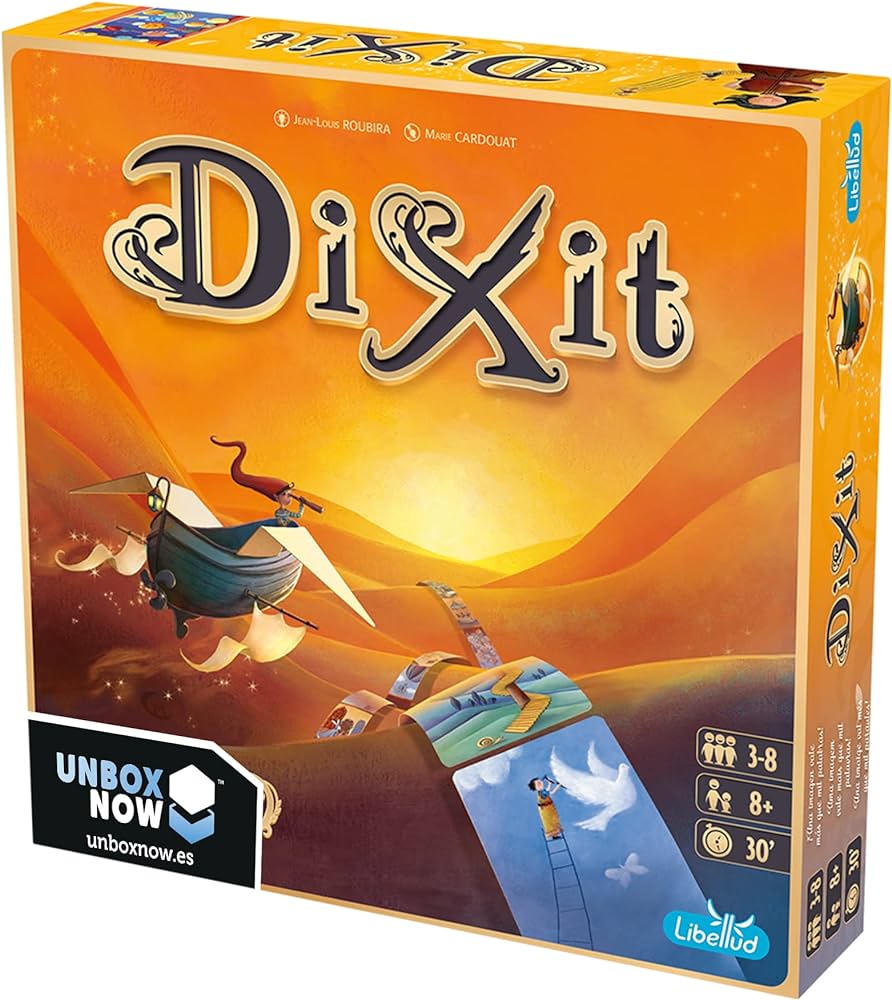
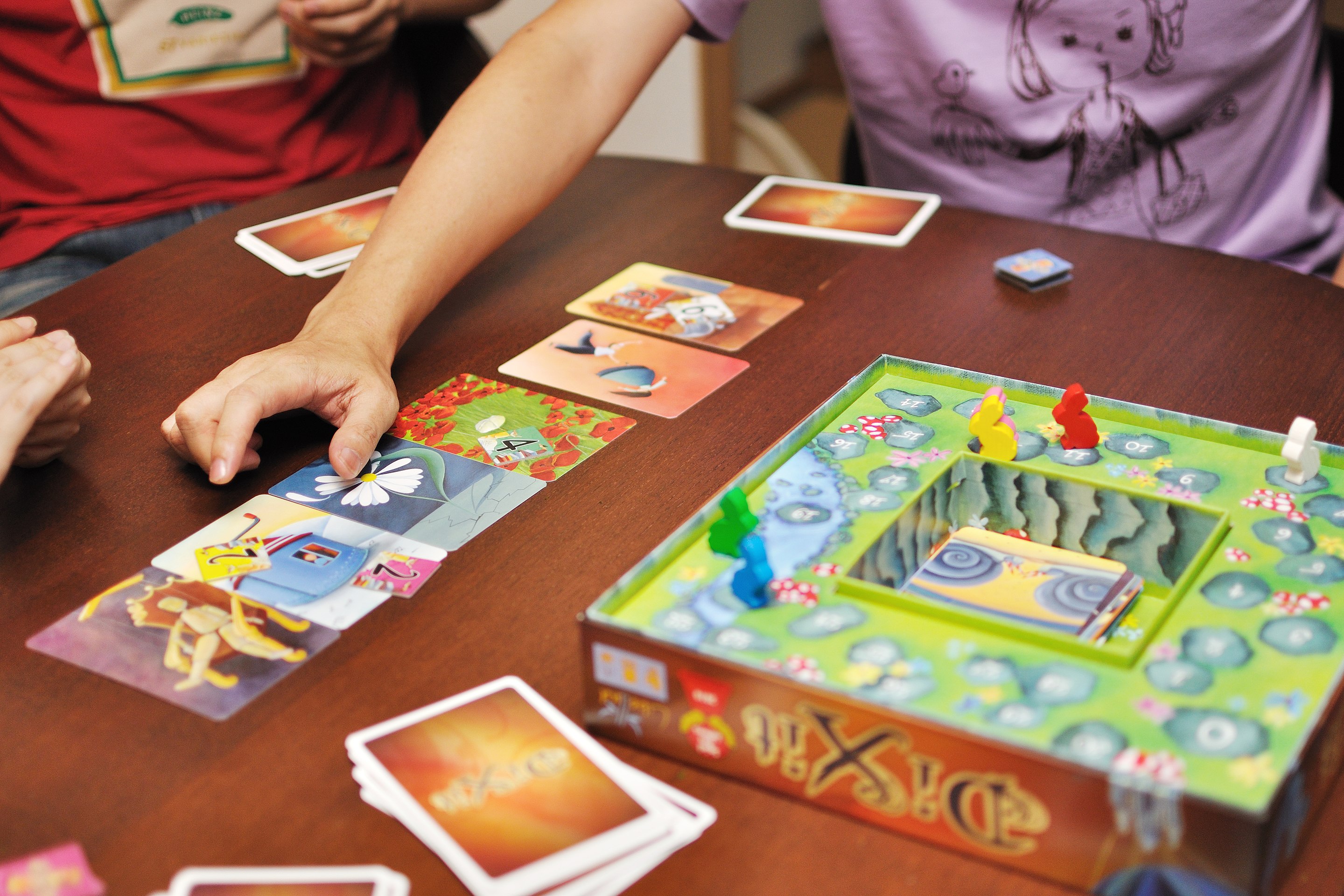
Dixit
Dixit ist ein Kartenspiel, das die Spieler einlädt, auf ihre Intuition und Fantasie zu vertrauen, um zu erraten, welche Karte der Erzähler beschreibt.
Bei Dixit ist ein Spieler pro Runde der Erzähler und denkt sich einen Satz oder eine Phrase aus, die eine seiner Karten beschreiben könnte. Dann wählt jeder Spieler eine Karte aus der eigenen Hand, die am besten zur Beschreibung passt. Nach dem Mischen und Aufdecken stimmen alle Spieler außer dem Erzähler ab, welche Karte sie für die des Erzählers halten.
Tools
Dixit enthält ein Deck mit 84 einzigartigen, wunderschön illustrierten Karten, ein Spielbrett, sechs Holzhasen als Spielfiguren und 36 Abstimmungsplättchen in sechs verschiedenen Farben.
Skills Developed
Dixit fördert Kreativität, abstraktes Denken und soziale Interaktion, da die Spieler die Geschichte hinter den Bildern interpretieren und erraten.
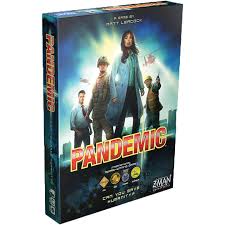
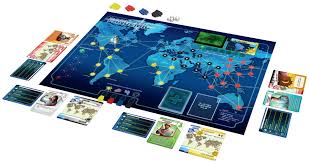
Pandemic
Das Spiel ist perfekt für Oberstufenschüler, da es intellektuelle Anregung bietet, Teamarbeit fördert und Wissen über globale Gesundheit und Geografie vermittelt.
Die Spieler übernehmen verschiedene Rollen als Wissenschaftler, Forscher und Mediziner und arbeiten zusammen, um Infektionen zu behandeln, Ausbrüche zu verhindern und Heilmittel zu finden. Mit Aktionspunkten pro Zug reisen sie, behandeln Krankheiten, tauschen Wissen aus und sammeln Karten, um Heilmittel zu entdecken. Das Team gewinnt, wenn alle vier Heilmittel gefunden werden, bevor zu viele Ausbrüche auftreten.
Tools
1 Spielplan, 7 Rollenkarten mit passenden Spielfiguren, 59 Spielerkarten, 48 Infektionskarten, 96 Seuchenwürfel (in 4 Farben), 6 Forschungsstationen, 4 Heilmittelmarker, 1 Ausbruchsmarker, 1 Infektionsratenmarker und ein Regelheft.
Skills Developed
Das Spiel fördert kooperative Strategie, kritisches Denken, Teamarbeit, Entscheidungsfähigkeit und Krisenmanagement, da die Spieler zusammenarbeiten müssen, um die globale Ausbreitung von Krankheiten zu stoppen.
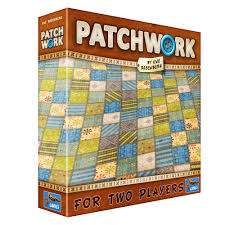
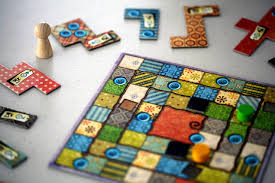
Patchwork
Patchwork ist ein Zwei-Spieler-Spiel, das die beruhigende Kunst des Quiltens mit strategischem Gameplay vereint – ein interessanter Gegensatz, der es besonders macht.
Zwei Spieler wählen abwechselnd Stoffflicken und platzieren sie auf ihrem persönlichen Spielbrett, um möglichst viel Fläche abzudecken und dabei ihre Knöpfe (die Spielwährung) zu verwalten. Auch die Zeit ist ein Faktor, da jeder Flicken eine bestimmte Nähzeit benötigt. Das Spiel endet, wenn beide Spieler das Ende der Zeitleiste erreichen – der Spieler mit den meisten Knöpfen nach Abzügen gewinnt.
Tools
1 Zeitleiste, 2 Spielertableaus, 33 Stoffflicken, 5 Sonderflicken, 1 Neutralstein, 50 Knopf-Plättchen und ein Regelheft.
Skills Developed
Das Spiel fördert räumliches Denken, Ressourcenmanagement, strategische Planung und Entscheidungsfindung, da die Spieler Flicken effizient platzieren und ihre Knopf-Wirtschaft verwalten müssen.
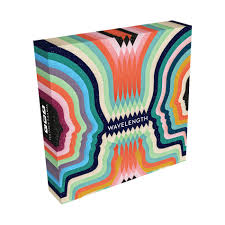
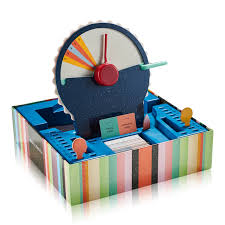
Wavelength
Wavelength ist ein innovatives und geselliges Ratespiel, das testet, wie gut man auf einer Wellenlänge mit anderen denkt.
Ein Spieler, der Hellseher, zieht eine Spektrumskarte mit einer Skala (z.B. heiß–kalt, glücklich–unglücklich). Das Zielfeld wird zufällig auf der Skala eingestellt. Der Hellseher gibt einen einzigen Hinweis, um sein Team zur richtigen Stelle auf dem Spektrum zu führen. Je näher der Tipp, desto mehr Punkte. Das erste Team mit genug Punkten gewinnt.
Tools
1 Spielgerät mit Drehscheibe, 2 Teammarker, 1 Punkteleiste, 168 Spektrumskarten und ein Regelheft.
Skills Developed
Das Spiel fördert abstraktes Denken, Kommunikationsfähigkeiten, Teamarbeit und das Interpretieren von Nuancen.
Classics
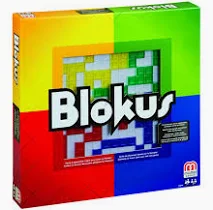
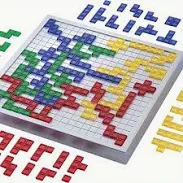
Blokus
Blokus ist ein fesselndes Strategie-Brettspiel – farbenfroh, wettbewerbsorientiert und eine echte Denksportaufgabe.
Die Spieler legen abwechselnd Steine ihrer Farbe auf das Brett, wobei jeder neue Stein einen eigenen nur an den Ecken berühren darf. Ziel ist es, möglichst viele Steine zu platzieren und dabei die Gegner strategisch zu blockieren. Wer die wenigsten ungespielten Steine hat, gewinnt.
Tools
1 Spielbrett und 84 Polyomino-Spielsteine (21 in jeder der vier Farben: Rot, Blau, Gelb und Grün).
Skills Developed
Das Spiel fördert räumliches Denken, strategisches Denken, Problemlösung und visuelle Planung.
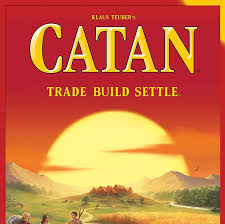
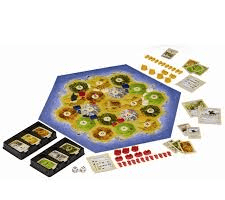
Catan
Catan ist ein spannendes Brettspiel, bei dem die Spieler durch Handel und Ressourcengewinnung Siedlungen errichten und ausbauen.
Die Spieler würfeln abwechselnd, um Rohstoffe zu produzieren, die sie zum Bau von Straßen, Siedlungen und Städten nutzen. Durch geschickten Handel und strategische Platzierung versuchen sie, als Erste 10 Siegpunkte zu erreichen und das Spiel zu gewinnen.
Tools
19 Landschaftsfelder, 6 Rahmenteile, 9 Hafenplättchen, 95 Rohstoffkarten, 25 Entwicklungskarten, 4 Baukostenübersichten, 2 Sonderkarten, 16 Städte, 20 Siedlungen, 60 Straßen, 2 Würfel, 1 Räuber und ein Regelheft.
Skills Developed
Das Spiel fördert strategisches Denken, Ressourcenmanagement, Verhandlungsgeschick und Entscheidungsfähigkeit, da die Spieler handeln, bauen und expandieren müssen.
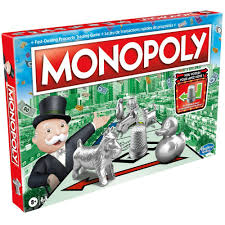
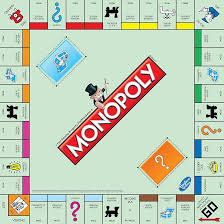
Monopoly
Monopoly ist ein klassisches Brettspiel, das Strategie, Zufall und die Prinzipien des Immobilienhandels vereint.
Die Spieler würfeln abwechselnd und bewegen sich über das Spielbrett, kaufen Grundstücke, kassieren Miete und bauen Häuser und Hotels. Ziel ist es, die Gegner durch hohe Mieten in den Bankrott zu treiben. Der letzte Spieler mit Geld gewinnt.
Tools
1 Spielbrett, 8 Spielfiguren, 28 Besitzrechtkarten, 16 Ereigniskarten, 16 Gemeinschaftskarten, 32 Häuser, 12 Hotels, 2 Würfel, Spielgeld und ein Regelheft.
Skills Developed
Das Spiel fördert Finanzkompetenz, strategische Entscheidungsfindung, Verhandlungsgeschick und Risikobewertung.
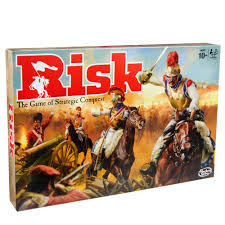
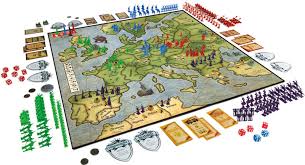
Risk
Risk is a board game of diplomacy, conflict, and conquest. It's a classic game of strategy where players' ultimate goal is to occupy every territory on the board and eliminate other players in the process, thereby establishing supremacy in the world.
Players take turns deploying armies, attacking opponents, and fortifying their territories to gain control of the world. Battles are resolved using dice rolls, and players must balance offense and defense. The last player standing or the first to complete their objective wins the game.
Tools
1 game board, 5 sets of army pieces (troops, cavalry, artillery), 56 Risk cards, 5 dice, and a rulebook.
Skills Developed
The game enhances strategic thinking, tactical decision-making, risk assessment, negotiation skills, and resource management, as players must carefully plan attacks and defenses while expanding their empires.
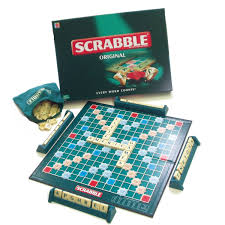
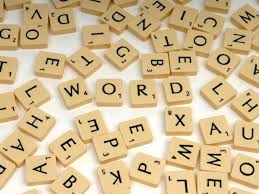
Scrabble
Scrabble ist ein klassisches Wortspiel, bei dem Spieler Punkte sammeln, indem sie aus einzelnen Buchstabenplättchen Wörter auf einem 15x15-Raster bilden.
Bei Scrabble ziehen die Spieler abwechselnd Buchstabenplättchen und bilden Wörter auf dem Spielbrett – horizontal oder vertikal. Jeder Buchstabe hat einen Punktwert, und die Spieler versuchen, durch geschicktes Nutzen der Bonusfelder möglichst viele Punkte zu sammeln.
Tools
Das Scrabble-Set enthält ein 15x15-Raster-Spielbrett, 100 Buchstabenplättchen, 4 Ablagebänke, einen Plättchenbeutel und optional einen Punkteblock und Timer.
Skills Developed
Scrabble fördert Wortschatz, Rechtschreibung, strategisches Denken und mathematische Fähigkeiten durch Wortbildung und Punkteberechnung.
Frequently Asked Questions
No spam, ever. Unsubscribe anytime.
Spread the Fun of Learning!
Love our content? Show your support by sharing our page with your friends and help us inspire more families and educators with the joy of learning through play! Your shares truly make a difference. Thank you for being a wonderful part of our community!